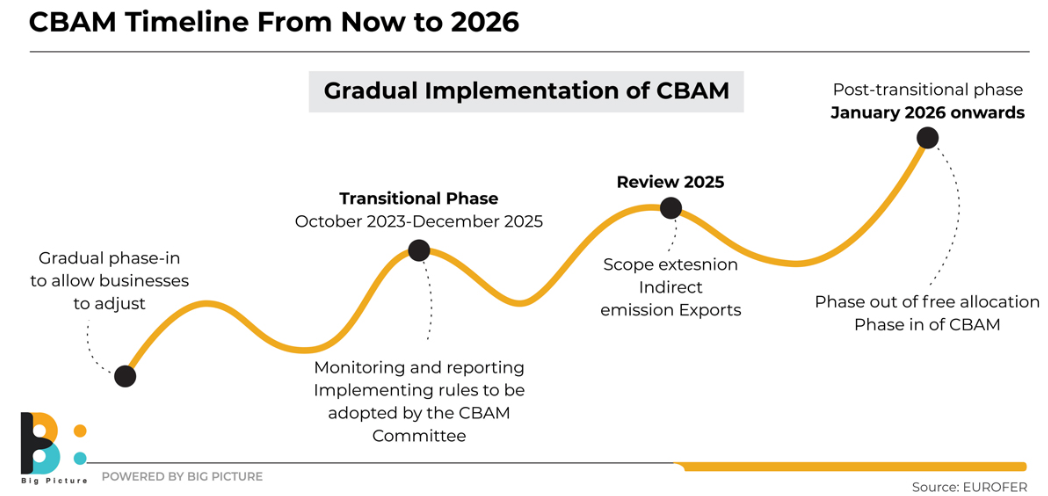

During a recent gathering between the European Commission and representatives from Japanese industry to deliberate on the European Union's Carbon Border Adjustment Measures (CBAM) pertaining to steel and aluminium, the Japan Iron and Steel Federation (JISF) emphasised the apprehensions within the industry.

The Carbon Border Adjustment Mechanism (CBAM) is a system designed to impose a levy on imported goods originating from countries and regions that demonstrate reluctance towards global warming countermeasures. The European Union (EU) initiated a reporting system in October 2023, laying the groundwork for its comprehensive implementation scheduled for January 2026. This mechanism applies to six categories of imported products, encompassing items such as steel, aluminium, and cement.
In the seminar, Toru Ono, an advisor of the Japan Iron and Steel Federation (JISF), brought attention to several significant issues associated with the Carbon Border Adjustment Mechanism (CBAM). First and foremost, he expressed concerns about the consistency of CBAM with World Trade Organization (WTO) rules, suggesting potential violations that need careful consideration. Additionally, Ono criticised the perceived severity of penalty provisions within the reporting system, deeming them excessively harsh. Another noteworthy point he raised was the onerous obligation imposed on industries, particularly the steel sector, to report detailed data under the CBAM reporting system, highlighting the burdensome nature of this requirement. These concerns underscore the need for careful examination and potential adjustments to ensure a balanced and fair implementation of CBAM within the Japanese industrial context.
In the reporting system, importers must furnish comprehensive data, including the carbon footprint of their products, to EU authorities when exporting to the EU. The deadline for submitting export data for October-December is the end of January the following year. Critics argue that the extensive and intricate nature of the data demanded by the EU poses challenges for industries such as steel, making it difficult for them to comply.
According to the Japanese industry, the EU's Carbon Border Adjustment Mechanism (CBAM) is a measure that has sparked complexity and controversy. Industries in both the EU and Japan must maintain an ongoing dialogue to address the concerns raised by each side effectively.
Received under the content exchange agreement with SteelMint
Responses








